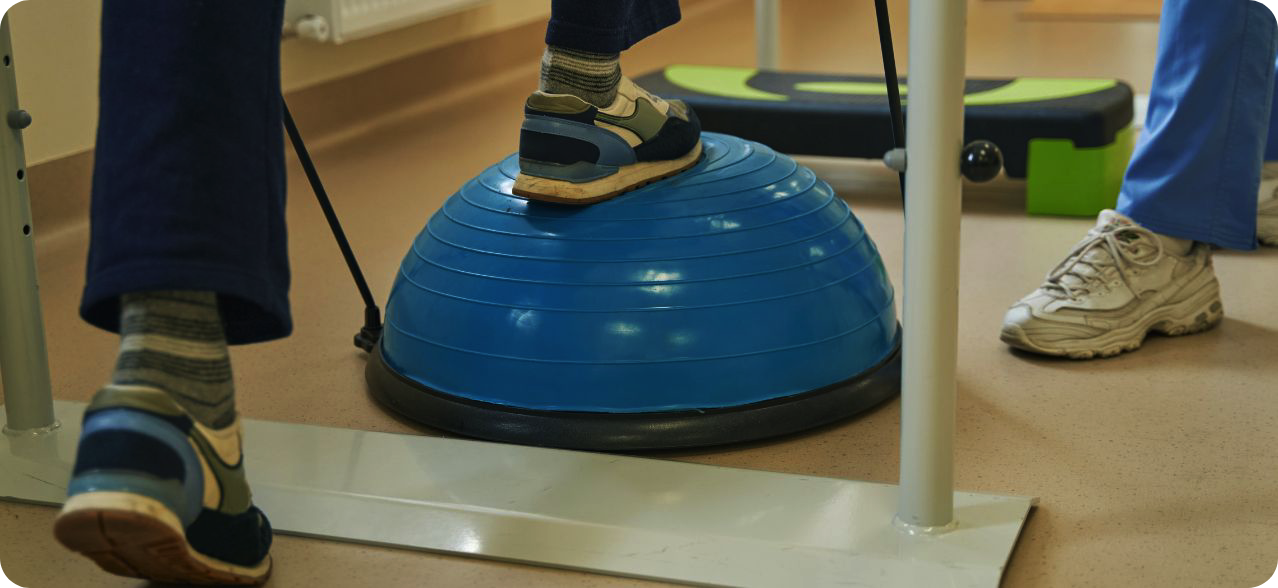Post-Surgical Rehabilitation
Most types of surgery benefit from physiotherapy led rehabilitation. Whether you have had a musculoskeletal injury which has required surgery, a heart operation, or an abdominal incision for a surgery to your internal organs, physiotherapy is the key to a quick and effective recovery.
Why is post-surgical rehabilitation important?
After surgery, it is important to undergo a structured rehabilitation program to help reduce pain, improve range of motion, and restore function. Rehabilitation can help prevent complications such as stiffness, weakness, and immobility, which can slow down the healing process and prolong recovery time. Physiotherapy can play a critical role in the rehabilitation process by providing you with the necessary tools to regain function and mobility.
What are the different types of post-surgical rehabilitation?
Orthopedic Rehabilitation: This type of rehabilitation focuses on recovering from musculoskeletal injuries, such as fractures, joint replacements, and ligament repairs.
Neurological Rehabilitation: This type of rehabilitation focuses on restoring function after surgery involving the nervous system,such as spinal cord injuries, peripheral nerve injuries and traumatic brain injuries.
Cardiovascular Rehabilitation: This type of rehabilitation focuses on recovery from cardiac surgery, such as heart bypass or valve replacement.
Pulmonary Rehabilitation: This type of rehabilitation focuses on recovery from lung surgery, such as lung cancer resection or lung transplant.
How can physiotherapy help with post-surgical rehabilitation?
Physiotherapy can help manage surgical rehabilitation in several ways, including:
Accurate diagnosis and education on the condition.
Pain and Symptom management: We can use a variety of manual therapy techniques (mobilisations, massage, needling) and biomechanical modification (changing the way you move your body) to reduce pain. This can in turn reduce reliance on pain medications, although if we believe you would benefit from a medical review to help manage your pain we will refer you back to your doctor.
Graded exercise rehabilitation: Movement is medicine so figuring out how to move safely and what exercises you should be doing in what order is the key. We will tailor exercises specifically to you and your symptoms depending on what type of surgery you have had and what your condition was.
Functional rehabilitation: Ultimately the goal of any rehabilitation program is to get back to doing the things you love as well as the basics that you need for day to day life. We will work with you to create a personalised program that will help you to regain your functional abilities.
What can I expect during my physiotherapy treatment?
During your initial assessment you will receive a comprehensive assessment to determine the drivers of any pain or dysfunction. We will then work through your goals to make a rehabilitation plan. Rehabilitation is always individualised and varies from person to person. Sessions will generally last between 30 and 60 minutes and may include hands-on modalities such as massage, mobilisation or needling, as well as education, exercise therapy and functional goal related rehabilitation.
We will closely monitor you throughout the rehabilitation journey, making any changes and adjustments to your rehabilitation plan as necessary.
What are the benefits of physiotherapy for post-surgical rehabilitation?
Faster recovery: Early post-operative mobilisation and early rehabilitation is crucial to successful outcomes. Accessing physio may assist in the healing process and get you back to your activities of daily living quicker.
Reduced pain and inflammation: Understanding pain and the drivers of pain in the body allows for appropriate recommendations and interventions.
Improved mobility and function: Addressing functional weaknesses and poor mobility as they occur and in line with rehabilitation guidelines ensures optimal healing and functional gains. A guided program which addresses range of motion, flexibility, strength, and balance will allow you to perform your daily activities earlier and more effectively.
Prevent complications: Post-Surgical physiotherapy intervention acts as a safety net for any complications. At Best Physiotherapy we understand what should be happening during recovery and may be able to identify issues before they become serious problems. Appropriate physiotherapy rehabilitation will also help to prevent complications such as stiffness, weakness, and immobility, which can prolong recovery time.
At Best Physiotherapy, our team provides empathetic, expert care. We understand that surgery can often be scary and the recovery process frustrating. We pride ourselves on having the skills and knowledge to help you achieve your rehabilitation goals.
Contact us today to learn more about how we can help you manage your post-surgical recovery and improve your quality of life at Best Physiotherapy, 72 Maribyrnong Street, Footscray.



